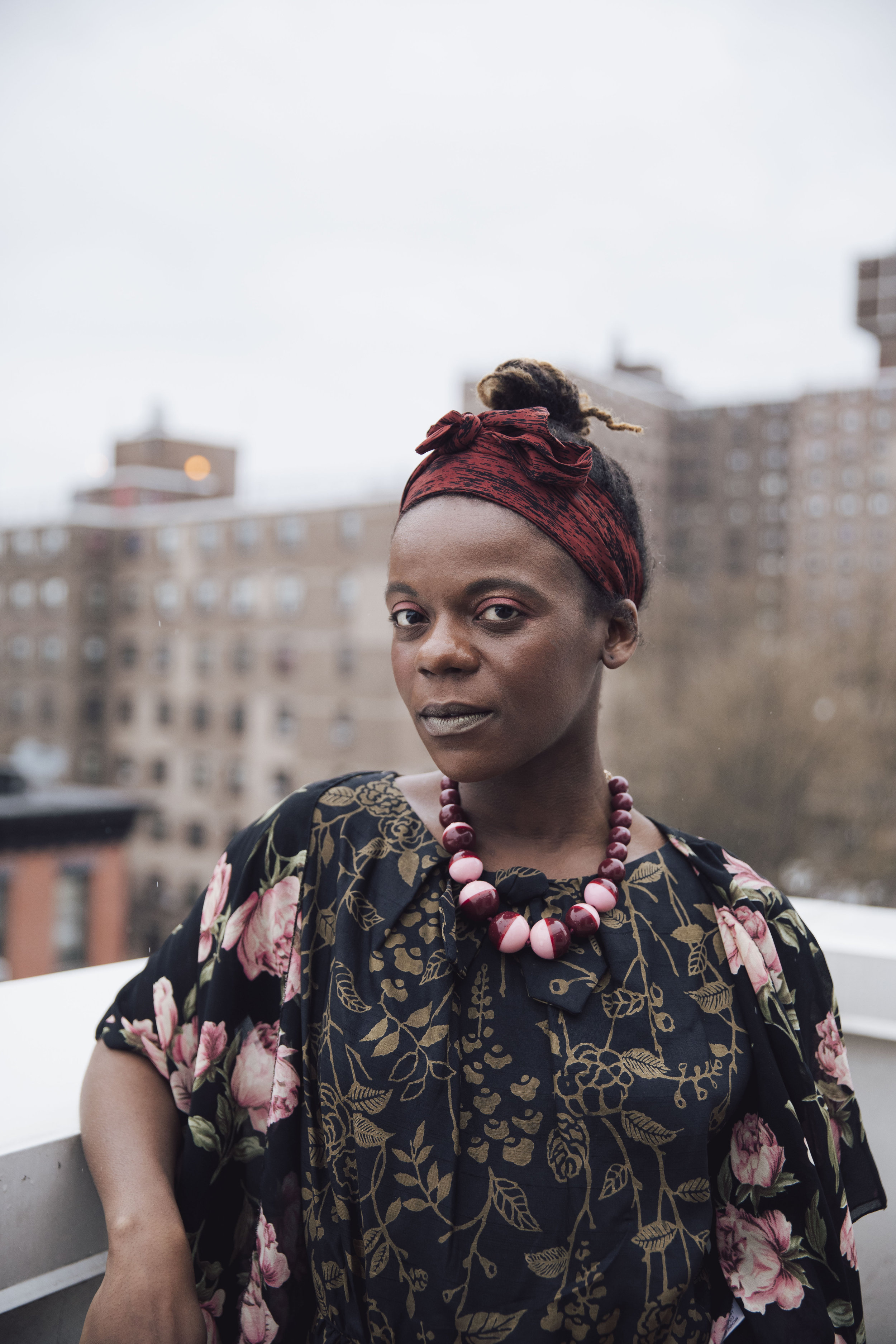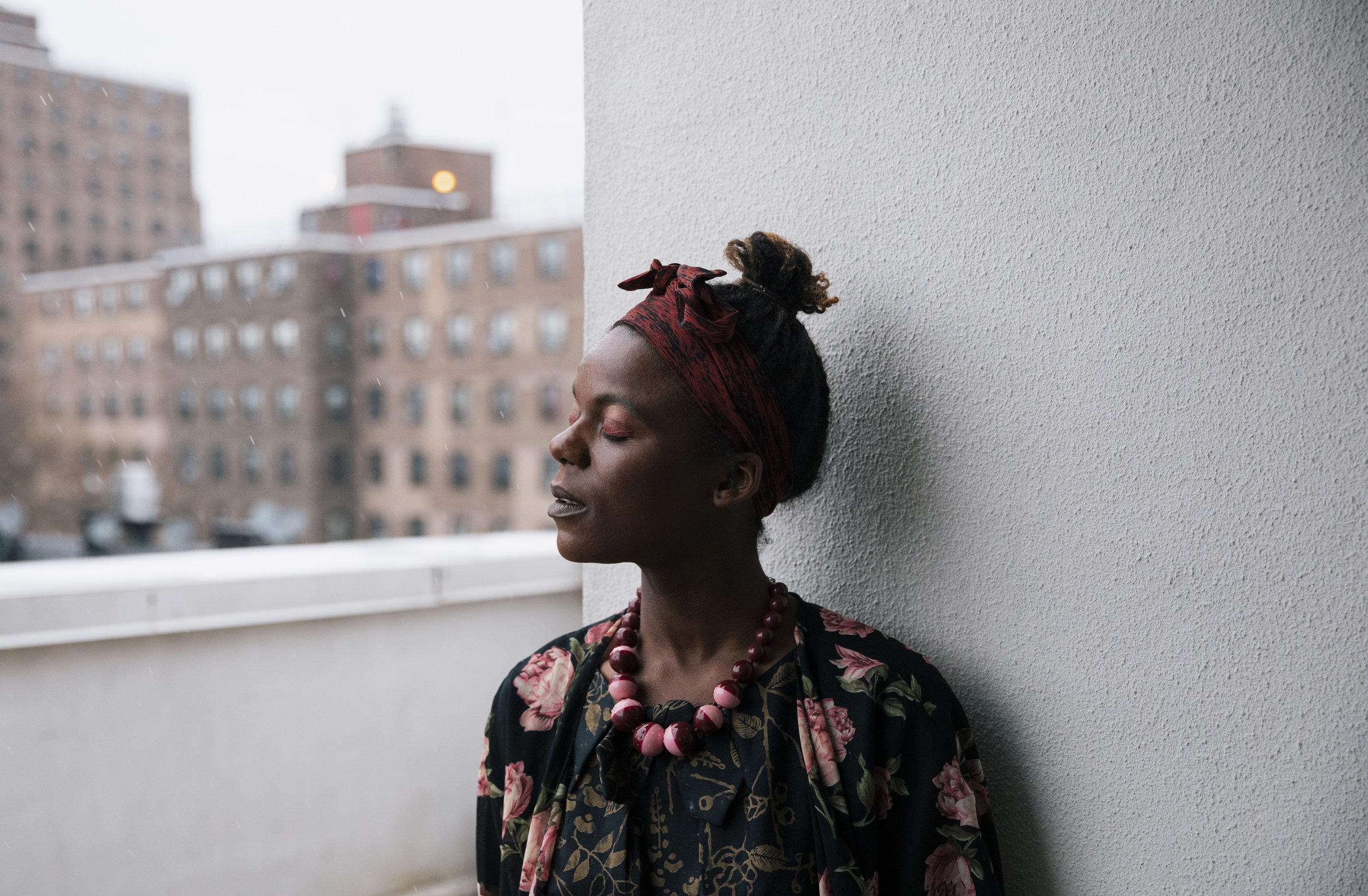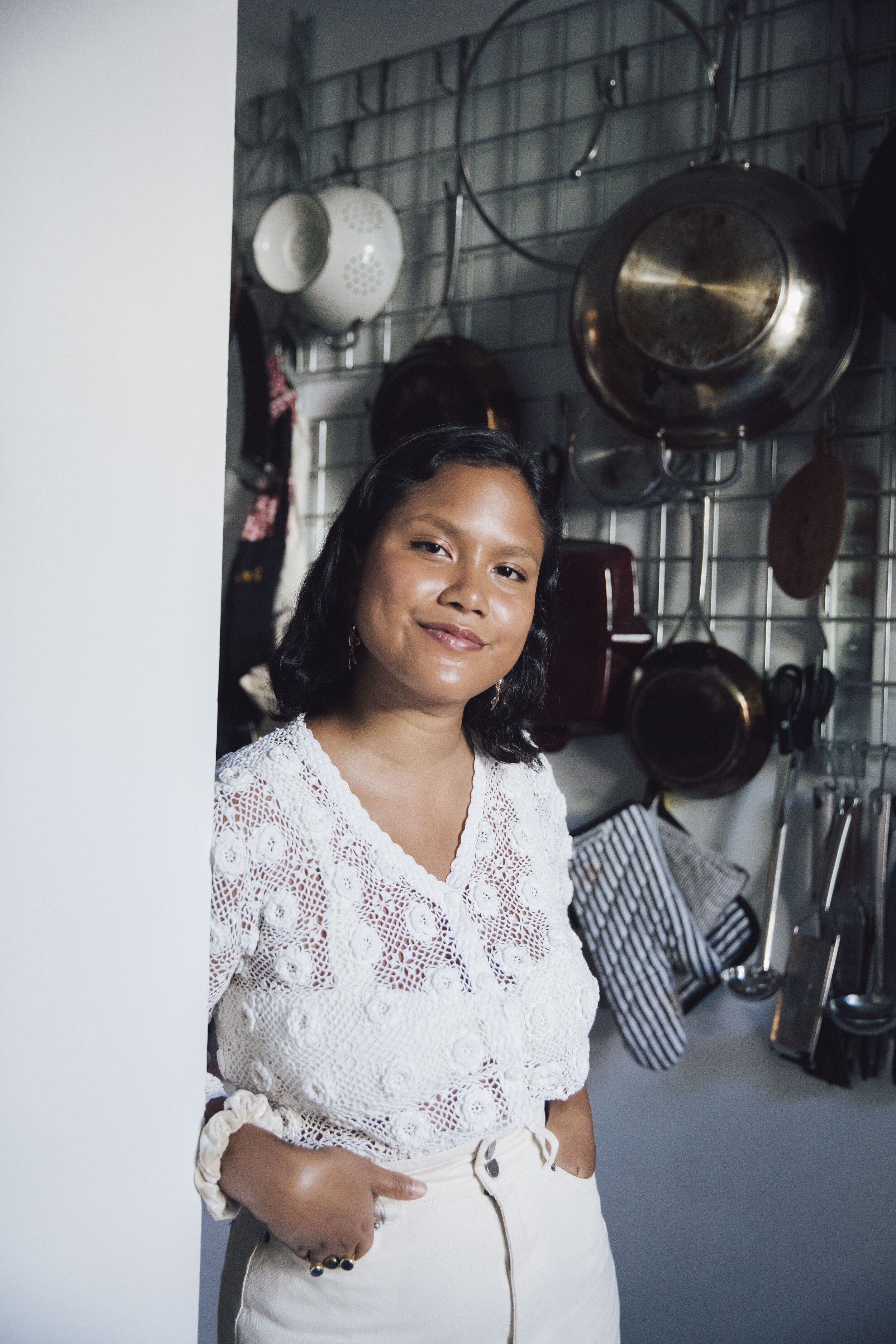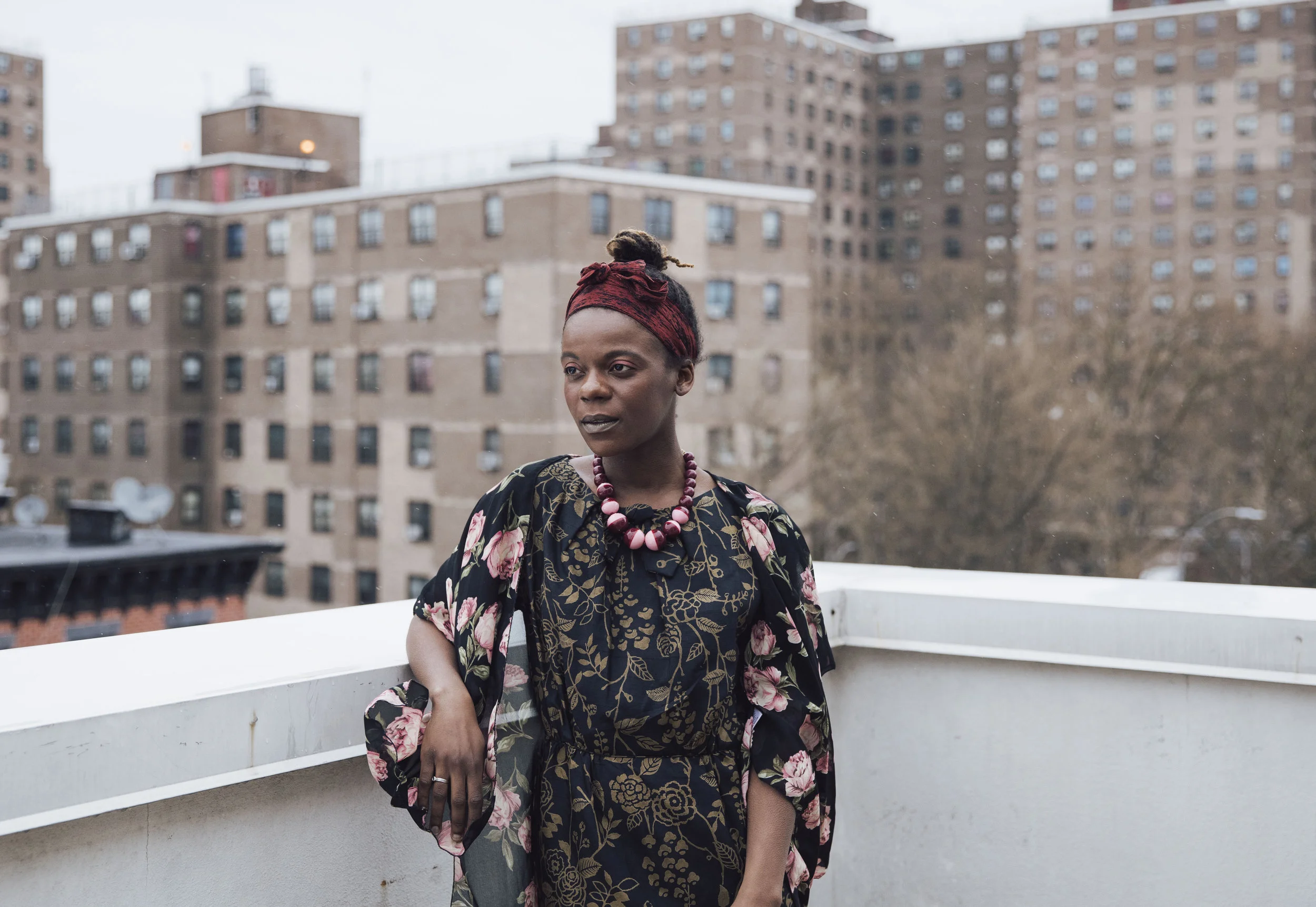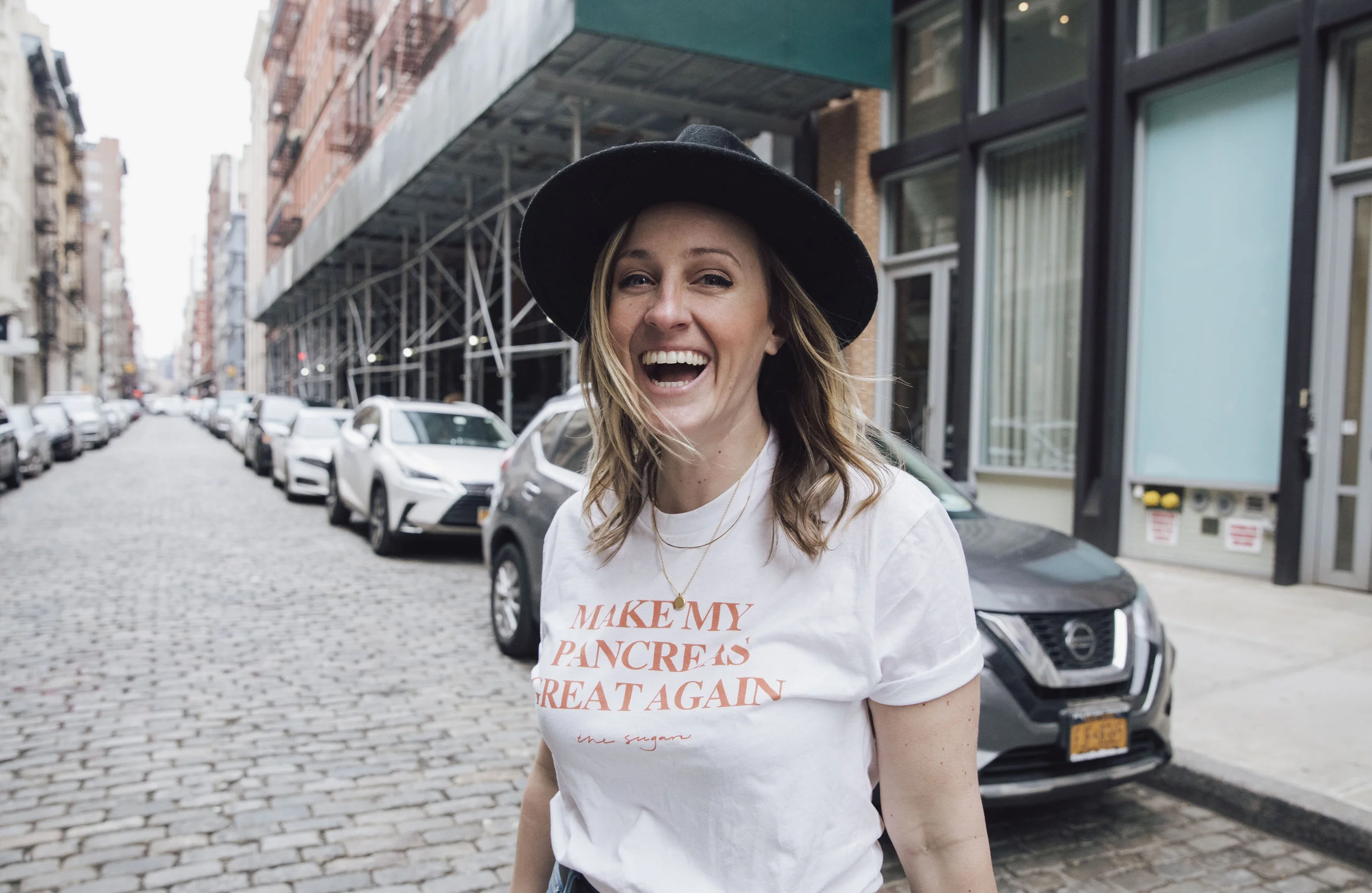how Ibada Wadud is empowering women with her handbag brand Lulah
ibada wadud, founder of lulah—the handbag brand telling a beautiful story—opens up about how service is the cornerstone of her decision to take action and why she chooses to lead with love.
Name.
Ibada
Occupations, affiliations, and projects.
Founder & CEO, LULAH, Emerging Philanthropist, Women's Prison Association, Member, The Wing, Member, Female Founder Collective, City Organizer, Quilt, Junior Board, Liberation Prison Yoga, RISD, Institute for Design & Public Policy '16, Juniata College, Young Alumni Achievement Award '19.
People Who Do focuses on those who take action to pursue meaningful work and life passions—why is it important to you to “do”?
These days, I try to make sure that everything I do aligns with my purpose and the value system that I have developed for my personal and professional life. The cornerstone of my value system is service. Service is all about taking action. I try to pay particular attention to tuning into my own needs so that I have the space to serve others in a way that is sustainable. To me, doing is about developing an intention behind each action that I take. It’s not easy to be turned on at this level 24/7 so I also try to give myself breaks. This is when I take time to indulge into my creativity. But the goal is to practice service on a daily basis so that it becomes my way of being; and therefore my way of doing.
“The cornerstone of my value system is service.
Service is all about taking action.”
To date, what accomplishments are you most proud of?
I’m most proud of the work I’ve done on myself. It’s the foundation for all of my “accomplishments.” My 2018 was a rough year. I experienced a lot of loss, and I’m proud of the way that I pushed through mentally and emotionally. I spent a lot of time sweating it out on my yoga mat and tapping into my inner child to heal my own trauma.
Once I learned to give myself space to let certain things and people go, a flood of blessings came into my life. I’m proud, but I’m also super grateful.
While I was healing, I was channeling all of my energy into LULAH. At LULAH we design better handbags made in Brooklyn by formerly incarcerated women.
What was the thought behind the creation of Lulah?
LULAH is named for my mother, Lula Bright, who is our brand muse. She overcame racial oppression as a young girl in the Jim Crow South, and went on to raise my sisters and I as a single mother while carrying the same leather handbag for a decade. Despite economic hardship, she never compromised on quality, and pursued extraordinary opportunities to secure my future. As a result, I developed a deep appreciation for quality and learned at an early age to scrutinize for value and the overall sustainability of products. I love leather goods for this reason.
I love that a quality leather handbag can carry us through entire seasons of our lives. I spent my entire childhood admiring my mother’s leather handbag, and yet, I was always frustrated as my sisters and I stood at the front door while she dug through her bag searching for her keys, which had inevitably sunk to the bottom. My desire to develop a solution to the ubiquitous handbag problems that women face, along with my passion for storytelling, are why I have always been enamored with heritage brands.
However, having spent a decade working at the intersection of fashion, cultural heritage and social justice, I found that the narratives that have come to define American heritage brands, are not inclusive, and rarely depict the stories of people of color. At LULAH we are reimagining the classic American heritage brand in the likeness of women of color as we celebrate unsung women like my mother. Women of color have been unseen and unheard for too long throughout the course of American history. We are underrepresented in the narratives and imagery that are celebrated by our society, including the fashion industry, yet we embody and inspire the vibrant and triumphant spirit that defines American culture. This pretense inspired me to reimagine a heritage brand for the 21st century and discover the LULAH woman. According to Nielsen, the collective buying power of black women is projected to reach $1.5 trillion by 2021. These days, I see the LULAH woman everywhere. She is woke and well-groomed. She is family and career-oriented. She is a trendsetter and a loyalist.
“I see the LULAH woman everywhere. She is woke and well-groomed. She is family and career-oriented. She
is a trendsetter and a loyalist. ”
Can you share more about the decision to partner with WPA and why that's important to you?
The Women’s Prison Association (WPA) has been working with women impacted by the criminal legal system for 175 years. For me, it was critical to have an effective nonprofit partner. They are the experts and my team looks to them on a daily basis for guidance. It’s been an incredible partnership thus far, and we are very grateful to have support from the Mayor’s Office of Criminal Justice.
The partnership with the Women’s Prison Association developed out of my role as a member of the Emerging Philanthropists. I joined the junior board in 2017. I’ve had a passion for social justice for as long as I can remember. My mother instilled within me a spirit of service and a pursuit for justice and equity. My career in the fashion industry has always been focused on sustainability, women’s empowerment and economic justice, including my work at Kate Spade in corporate social responsibility. After undergrad, I even thought I might go to law school before I found myself living in Europe and eventually working in fashion.
During my time in Europe, I experienced racial discrimination during an encounter with police and I was incarcerated for 30 days for resisting arrest. Although my record was expunged, this experience further propelled me into my advocacy work around criminal justice reform.
As my work with WPA evolved, I experienced healing through my service. WPA has been an incredibly supportive community to me. So when my time at Kate Spade came to an end, all signs pointed to LULAH. I would equate it to a spiritual experience. I just know this is the work I will do forever. Elaine Welteroth says something that I love—“you can do what everyone did before you, or you can do what no one else can do but you. And I call that finding your zone of genius.” LULAH is my zone of genius.
How is womanhood something that you consider during the creation process for your bags?
I developed LULAH out of The Wing, a coworking space and community designed for women. I spent a lot of time engaging women at The Wing, and listening to stories about their handbag problems.
As women, in particular, our handbags contain our lives, but when it comes to functionality, there are very few options in the $11.5 billion handbag industry that meet our unique needs and our standards.
When I first came up with the concept for The Marg, our signature style, I knew that we had to lead with design while maintaining a commitment to quality. I brought in my design director and dear friend, Lauren, to make The Marg a reality. She and I previously worked together at Kate Spade. The Marg is named for my grandmother, who was a beauty entrepreneur, and she has a place for everything. She features a laptop sleeve, a convertible crossbody that doubles as a belt bag, a zip garment compartment, a convertible sleeve for your luggage handle that doubles as a magazine pocket, multiple interior pockets for things like water bottles and sunglasses, a removable cardholder and a key lanyard; and she’s the size of a standard leather tote. She is a direct response to the true demands and vulnerabilities of womanhood.
#1 motivating mantra to get through tough moments.
My mom always says “Are you helping or hurting?” I used to be so frustrated by this when I was younger because I felt like it was such a binary approach to assess my actions. Now it’s my north star.
What’s your favorite thing you’ve learned so far this year?
We must lose things so that we can make space for new and better things. And in this way, we win.
What’s your favorite lesson you’ve ever learned?
Lead with love, not the desire to be loved.
What's one thing you would tell someone who's looking to start their own heritage brand?
Let your personal story guide you and look to your legacy for inspiration. The point isn’t to emulate brands that have been around for hundreds of years. You’re probably doing something right if your story hasn’t been told before.
“You’re probably doing something right if your story hasn’t been told before. ”
What's your go-to song to put you in a better mood?
I have so many. But right now probably Shea Butter by Ari Lennox & J Cole. It's so unapologetically for the culture.
Who do you look to for inspiration?
My ancestors. I obsessively began researching my family history and genealogy in 2014 after I came home from prison. I needed to deeply understand my purpose. It was a very lonely period in my life. My ancestors, specifically my family matriarchs, served me when no one else could and in doing this research I not only connected more deeply with my family, I learned that no one owes me anything, not even comfort during my darkest hour. I learned that I was the source of my own strength, and that my story is a continuation of my ancestors’ legacy. This is a deep source of pride.
What’s the best piece of advice that you can give someone right now?
Let go of your shame. There is no greater fear than the fear we have of ourselves. The moment we begin to own the things we are ashamed of is the moment we can let go of the fear of being judged.
What’s the next goal?
Reparations for my family. A few months ago I identified the historic home in North Carolina where my ancestors were enslaved. It's now for sale. My goal is to reclaim it for my family by petitioning the state of North Carolina.
By "do-ing", you create your own unique legacy. How do you want your legacy to look?
Timeless, beautiful, abundant and kind.

